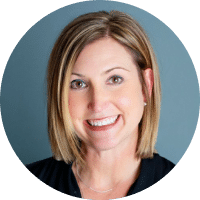Caring for construction workers
How JE Dunn Construction is changing mental health in a high-stigma industry

Construction has the second-highest suicide rate of all industries, and mental health can be particularly challenging for a male-dominant workforce. After 100 years, JE Dunn is transforming the way their company thinks about mental health and shifting their culture to be more open about this critical issue.
“Mental health plays a big role in the future of construction,” says Gordon Lansford, JE Dunn’s CEO.




Customer story
JE Dunn’s journey with mental health
”We were doing everything you could,” says Cindy Kirtley, VP of Benefits. “We had coverage in our benefits programs, we had renowned speakers, surveys, mailings, webinars, lunch and learns… And I still never felt like I was reaching the people I needed to reach, which is huge when you’re in an industry where suicide rates are much higher. I couldn’t find a solution for mental health that felt like it resonated with us.” With this new era of change, JE Dunn began searching for a new mental health partner in 2021.
A traditional EAP solution wasn’t working. JE Dunn sought a new partner with a powerful provider network, ease of access, and easy-to-use.
“We thought it was really important that an employee had the power of choice – that they could pick a provider from a strong network that would truly connect with them, or with their families. And we have people that travel a significant amount, so we needed to make sure that this network and access really spread across the U.S.,” shared Cindy. “And the last thing was the use of technology – how easy was it to access the benefit, find a provider, and make an appointment? Lyra provided all of those things for us, and it’s just been a fantastic partnership so far.”
Construction workers require a mental health solution with more flexibility and accessibility than a typical office worker.
“A significant portion of our workforce are building buildings every day, they’re not on their computers. We had to have a solution that really met the needs of our skilled trades, our office employees, and those in a variety of environments and timeframes throughout the day that they might need care. It was important that people could access that care when they needed it anytime, not just the traditional 9-5 hours,” said Christy Paoli, Chief People Officer.
Mental health and physical safety go hand-in-hand at JE Dunn.
“Mental health is extremely important in regard to safety on a jobsite. If you’re not in the right mental capacity, you can’t make safe decisions. Any mistake or indecision because you’re not in the right mental space can have life changing consequences. Having a resource like Lyra allows our teams to go home safely at the end of each day, and we can always count on Lyra as a resource to help our folks that are struggling,” said James Robles, National Safety Director.
Beyond utilization, Lyra is changing the stigma around mental health at JE Dunn.
“We can see that people are taking advantage of the services. We see that people are then saying that this is making a difference,” shared Christy.
“I know when our employees are happy, and when they’re not. With Lyra, you have employees who are openly sharing that they sought care and that it helped,” said Cindy. “It’s happening in meetings, emails, on video, in publications, in hallways. I’ve never seen it happen with any other benefit we have. But employees are wanting to start the conversation and share the success that they have to help.”
Mental health is an ongoing effort with Lyra’s personalized resources and communications.
“The partnership with Lyra has helped to move the needle on conversations around mental health,” said Cindy. “Lyra produces materials that speak to our populations, and they’re also nimble when we ask for something unique, like a hard hat sticker or mailings. With an 80% male workforce, we recognize that there are a lot of spouses at home probably making healthcare decisions that we need to reach out to.”
“Lyra cares about their people. They care about their clients. And that’s important to us when we’re picking a partner. Do you really care about what you’re doing and do you have the passion for it? And we believe that Lyra truly does.” —Christy Paoli, Chief People Officer
“I had an employee reach out who was struggling with his mental health. I connected him to Lyra and he called back a month later. I asked him, ‘how did it go? What did you think of Lyra?’ And he said ‘I freaking love Lyra!’ He said it just like that. ‘I freaking love Lyra.’” —Cindy Kirtley, Vice President of Benefits


Video library





